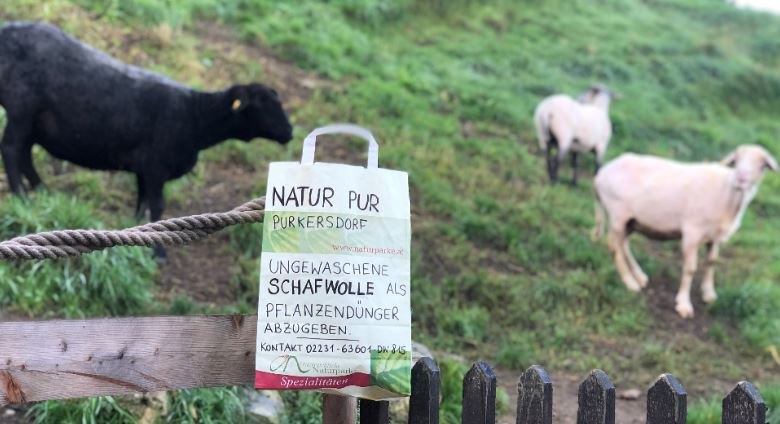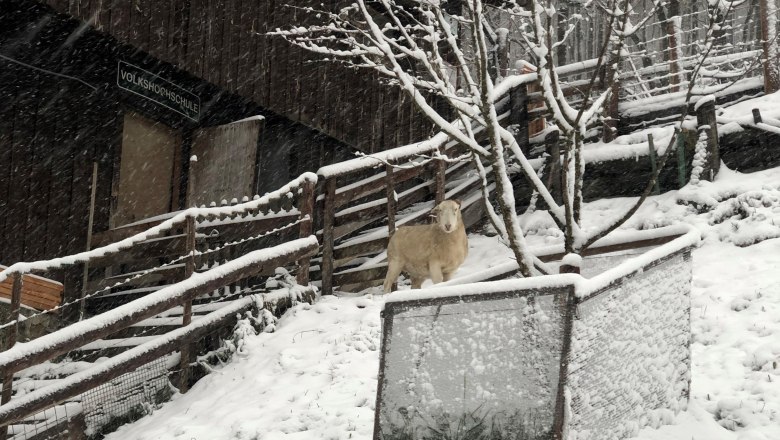Sheep wool as a plant fertilizer
Sheep wool from the nature park can be used as a plant fertilizer
Sheep wool, due to its slow decomposition and release of nutrients, acts as a long-term fertilizer in the soil and also provides good soil loosening and structure, as well as moisture retention.
Similar effect as wood shavings
Sheep's wool decomposes slowly and is therefore particularly suitable for high-yielding plants. It has a high nitrogen content of about 10 to 12%, is rich in keratin, and contains sulfur (leading to an improved nitrogen utilization), phosphorus and potassium. In addition, the wool is able to absorb many times its own weight in water to slowly release it to the soil/plant (in dry periods) like a sponge. Unwashed sheep's wool has the advantage of being partially covered with sheep manure or other plant matter, which also acts as a fertilizer.
What can be fertilized with it?
All plants except bog plants, which cannot form useful taproots with the wool.
- Perennials
- Woody plants
For stone fruit about 100-140 g/tree, for pome fruit about 70-100 g/tree and for berry bushes about 100 g/shrub. - Vegetables except root vegetables
Potatoes, broccoli and tomatoes especially like the sheep wool fertilizer. - Potted plants and also houseplants.
For potted and houseplants, simply mix about 10g of wool to one liter of substrate under the soil and set as usual.
How to fertilize with sheep wool?
For potatoes, simply place the seed potatoes in a nest made of wool, or place them with the wool in the soil as usual.
For other vigorous plants, put the wool on the root ball. You can also use the wool as a mulch after planting around the stem of the plant and weigh it down with soil (so that the birds do not snatch it away again for nesting).
As a guideline for fertilizing vegetables:
- Lamb's lettuce, radishes, peas or beans etc. have a low requirement
- Iceberg lettuce, carrots, kohlrabi or cucumbers have a medium requirement
- Potatoes or tomatoes have a high requirement.
Depending on the weather, it can take up to a year for the wool to completely decompose.
Pick-up of sheep wool right after sheep shearing in late spring or autumn at the nature park workshop - a voluntary donation is appreciated.
Contact: 02231 63601 815


